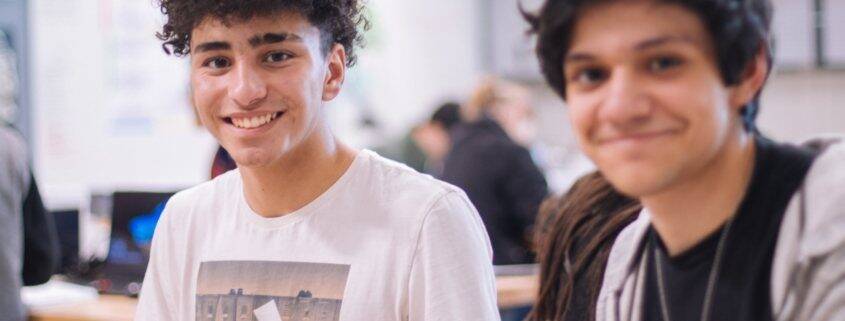Flexible thinking is the ability to think about something in a new or different way. Inflexible thinking or rigidity is being stuck or being only able to do something only one way. Students who struggle with executive functioning often also struggle with fundamental skill. They may be stuck in a routine or mindset that isn’t working for them. They may be aware that what they are doing isn’t working but not be able to make a change or be willing to even entertain a change.
Becoming a Flexible Thinker
A few years ago, I worked with a fifth grader whose parent and teacher shared that the student struggled with organizational skills and executive functioning. Upon meeting the student for the first time, I asked to see his binders (there were 7) and asked if he was open to a change in how he was managing them. He refused to even show me his backpack and held his binders to his chest as if I was going to steal them. In this scenario, I had to be the flexible thinker (modeling) and move to another lesson until he trusted me enough to come back to demonstrating the Organization skill. Ultimately, the student earned the most improved 5th grader award and rightfully so! He did a lot of growing that year.
To the observer, the lack of flexible thinking may sound like, “I don’t need help” or “My way works” or “I’ve already tried that”. The behaviors have been observed in students and adults alike.
We can’t effectively discuss flexible thinking without broaching the subject of margin and anxiety. Margin is the bank of reserves we have available of time, money or maybe patience. It’s what we may have set aside in case of emergencies, the unexpected or surprises.
When students are in a state of ease (lots of margin), mental flexibility is much easier. They may be open to considering or even trying new things, open to learning and even solving problems. The opposite is also true, when students are in a state of stress, they are generally out of margin, are less flexible and more rigid.
Students are more open to flexible thinking when they have a process they can control to manage their affairs. Learning that process begins with managing time/tasks effectively so they can build margin into their day and week for self care, self management and planning.
Time Management → Margin → Flexible Thinking
Once students have a process to see and plan their time and tasks, they can build the muscle of flexible thinking by being rewarded for variations and adjustments to their processes, like a science experiment and soliciting their feedback on those adjustments (metacognitive exercise).
For students with executive functioning difficulties, flexibility thinking and structure are important opposites to balance. A problem can have more than one solution! Students are more open to flexible thinking when they feel safe, have a process they can follow and are rewarded for trying new solutions.
Want to learn more about executive functioning and how it may help your student? Contact us!
